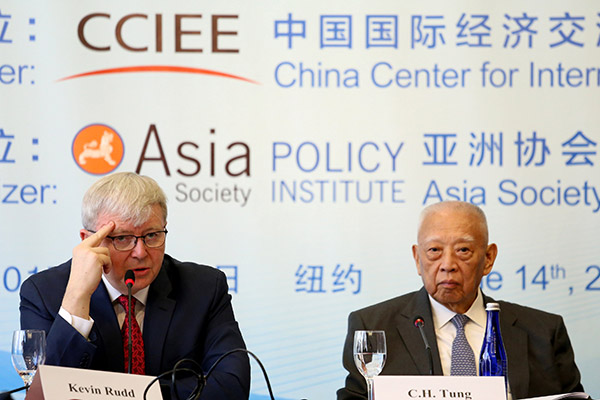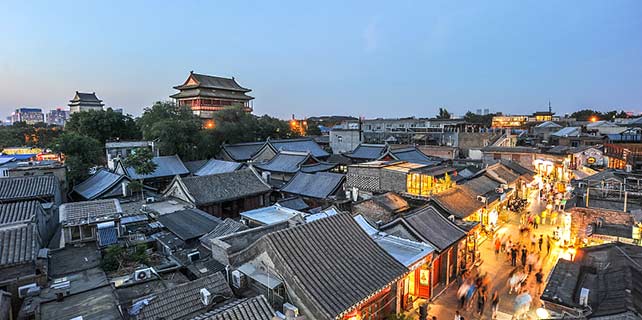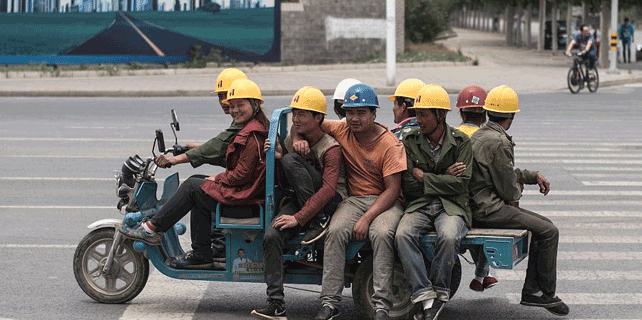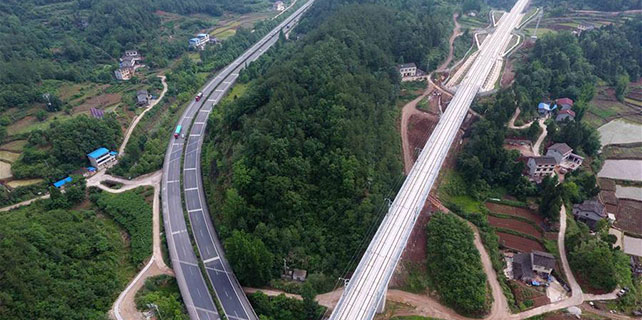B&R Initiative highlighted at think-tank on crucial China-US economic ties
 |
|
Former Australian Prime Minister Kevin Rudd (left) speaks at the "China and the US: Belt and Road Initiative and 100-Day Plan," a high-level think-tank discussion in New York, on June 14. [Photo/Agencies] |
NEW YORK-China and the United States, as the world's top two economies, need to enhance communication on the Belt and Road Initiative, which can benefit both countries and the whole world, said participants of a high-level think-tank dialogue here on Wednesday.
Kevin Rudd, president of Asia Society Policy Institute, said the China-proposed initiative covers the continent of Euro-Asia, a vast and complex part of the world.
Taking into account such factors as geopolitics and geoeconomics in the region, Rudd said China needs to explain how investment will be made in order to involve more participants in business.
Rudd made the remarks at the High-level Dialogue on US-China Economic Relations, which gathered scholars from leading think-tanks in both China and the US to discuss bilateral economic and trade ties.
Cui Tiankai, Chinese ambassador to the United States, said on the same occasion how the two countries manage their economic relations would affect the prospects of global economic growth.
"China and the United States should work together and make all the right choices and show the way forward to the world," he said.
Cui said the choice is between openness and isolation, between connectivity and separation, between win-win and zero-sum games.
China stands for openness, connectivity and win-win approaches as manifested by the Belt and Road Initiative, he noted.
The Belt and Road Initiative, aimed at building the Silk Road Economic Belt and the 21st Century Maritime Silk Road through concerted efforts of all related countries, was first put forward by Chinese President Xi Jinping in 2013.
It advocates policy coordination, connectivity of infrastructure and facilities, unimpeded trade, financial integration, and closer people-to-people ties through extensive consultation, joint contribution and shared benefits, with an aim to benefit all.
"This connectivity will make it possible to build stronger bonds among nations and really join hands to respond to the growing global challenges that transcend national boundaries," said Cui.
Michael Bloomberg, former New York City mayor, said history has shown that investing in infrastructure is one of the best ways to spur economic growth and that "China is putting that lesson to very good use."
He said that the ambitious initiative which calls for major investment in new infrastructure will create great opportunities for global investors.
He also noted that China and the US share a more inter-connected economic relationship than ever before and they have a stake in each other's success.
"Growth in China helps to fuel growth here in the United States and that is why it's been very encouraging to see the important steps that China has taken to open up its market to global investors," he said.
On infrastructure development, Josette Sheeran, president and CEO of the Asia Society, said infrastructure gap is not just about roads, but about quality of human lives and the ability of societies to reduce poverty.
She called infrastructure development a "natural place" where China and the US can work together, as both countries have advantages in it.
She called on thinkers to work out how to unite the world and use infrastructure to unlock the potential of economic growth.
The one-day event featured prominent keynote speakers including Tung Chee-hwa, vice-chairman of the National Committee of the Chinese People's Political Consultative Conference, and Zhao Qizheng, former minister of China's State Council Information Office.
It was jointly hosted by the New York City-based Asia Society Policy Institute and the China Center for International Economic Exchanges, with the participation of more than 30 scholars from leading think-tanks in both China and the United States.
- US Fed raises interest rates, fourth increase since December 2015
- Trade deficit focus called misleading
- Trade war between China, US 'destructive': former US diplomat
- High-level think-tank dialogue focuses on China-US economic, trade ties
- Statistics show close US-China trade ties: Chinese senior diplomat









